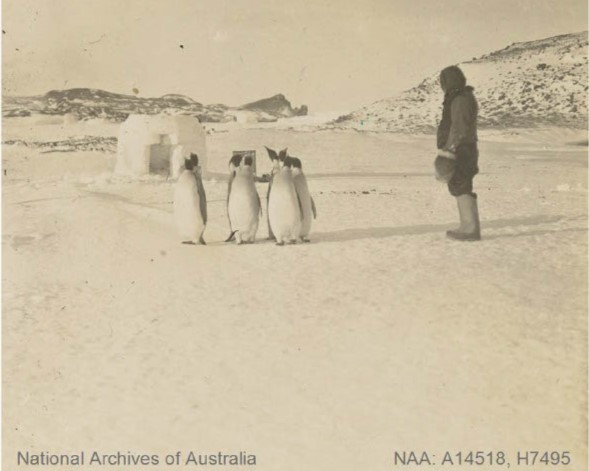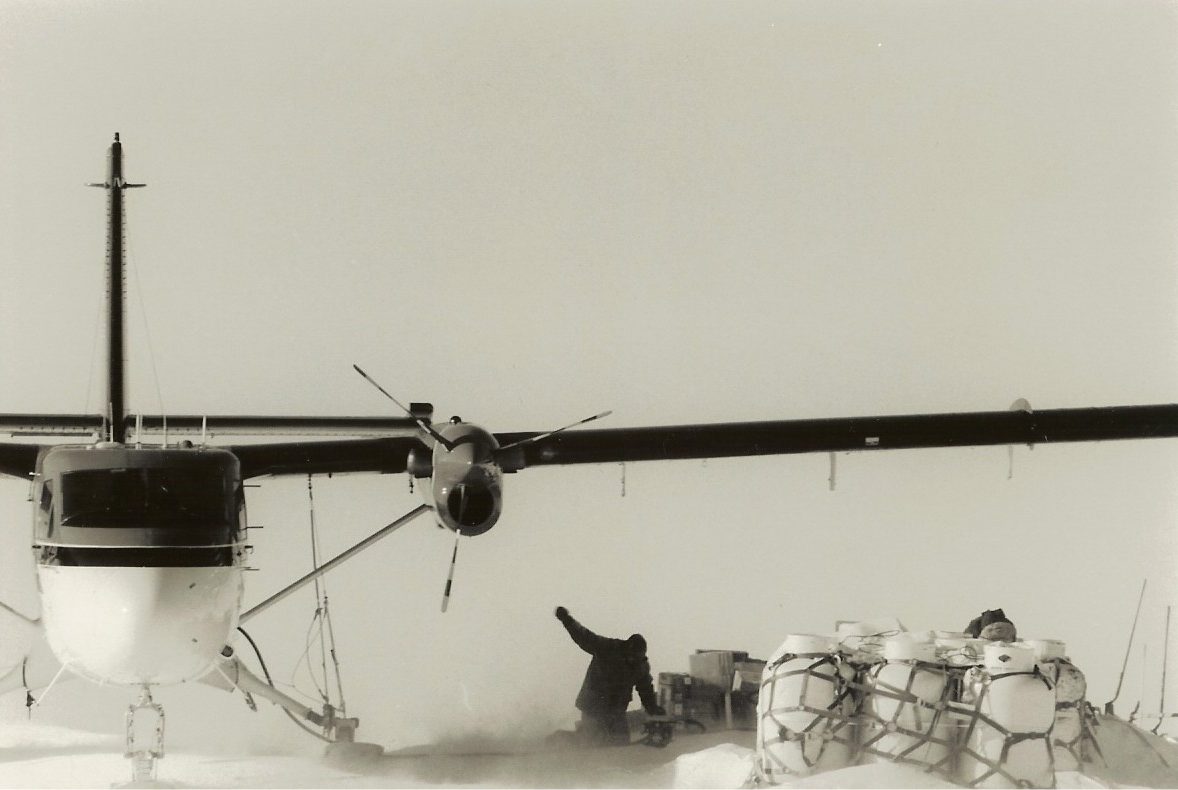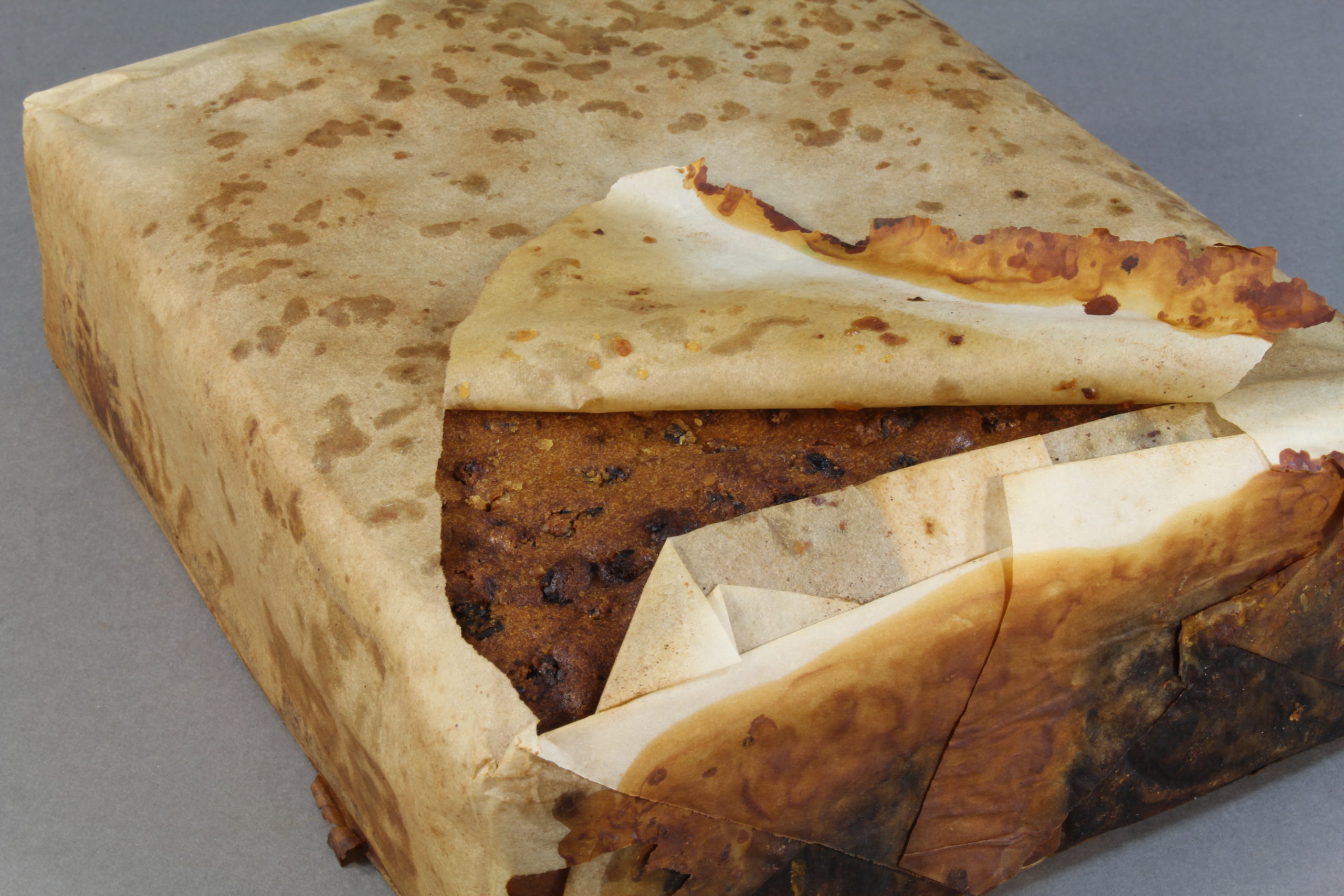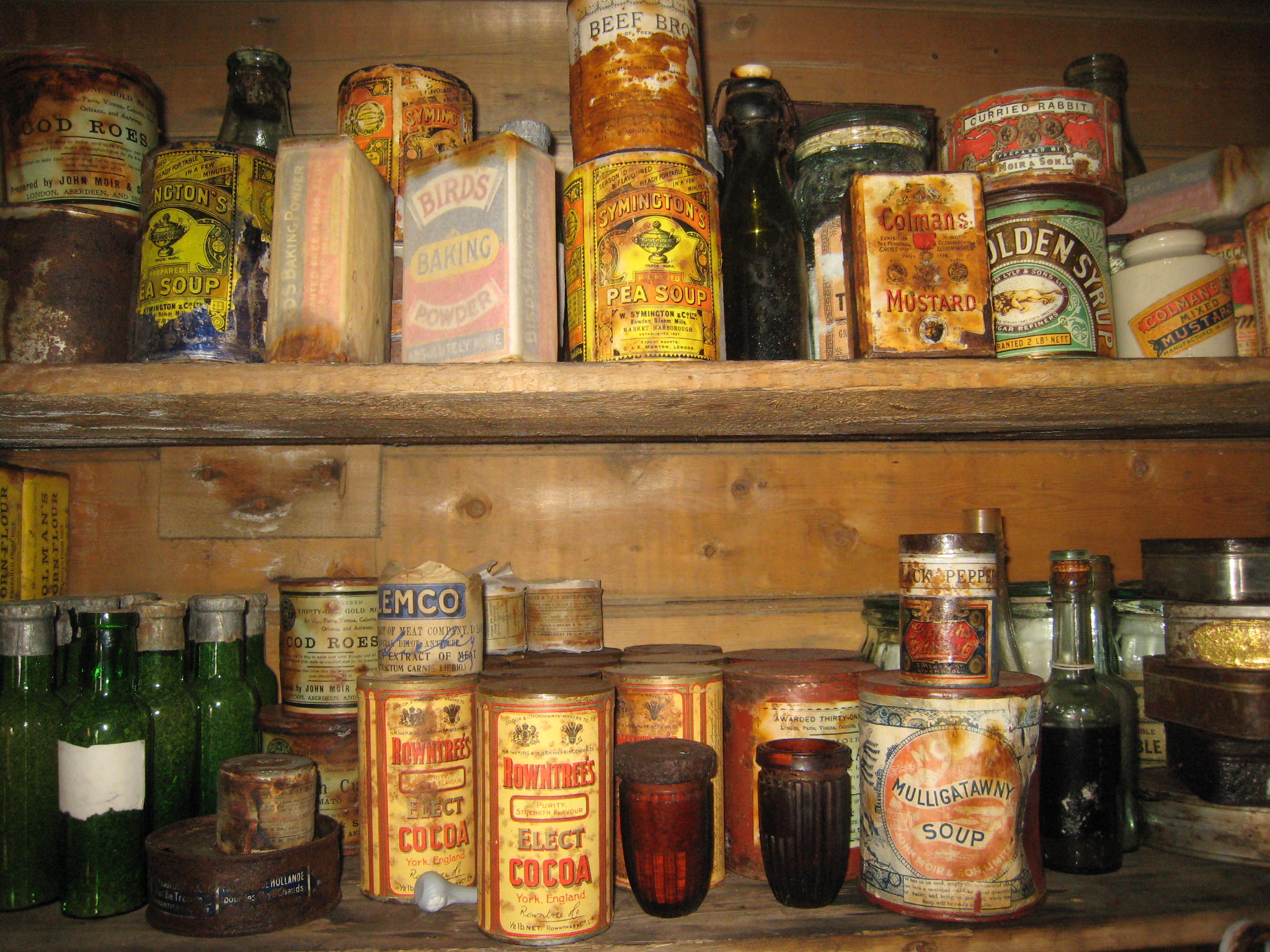Gastropod looks at food through the lens of science and history.
Co-hosts Cynthia Graber and Nicola Twilley serve up a brand new episode every two weeks.
Co-hosts Cynthia Graber and Nicola Twilley serve up a brand new episode every two weeks.
 A man from the 1907-1909 British Antarctic Expedition stands with a group of penguins. Explorers found that penguins were remarkably easy to approach—and hunt—because they have no natural land predators. (Image credit: National Archives of Australia)
A man from the 1907-1909 British Antarctic Expedition stands with a group of penguins. Explorers found that penguins were remarkably easy to approach—and hunt—because they have no natural land predators. (Image credit: National Archives of Australia)
Jason Anthony is the author of Hoosh: Roast Penguin, Scurvy Day, and Other Stories of Antarctic Cuisine. His current project is the weekly newsletter Field Guide to the Anthropocene.
 A small plane drops off supplies for a few weeks at a remote field camp in Antarctica. (Image by Jason Anthony)
A small plane drops off supplies for a few weeks at a remote field camp in Antarctica. (Image by Jason Anthony)
Lizzie Meek is the program manager for artifacts at the Antarctic Heritage Trust, where she works to preserve some of the objects left behind by the Heroic Age explorers.
 A fruitcake, made by British biscuit-makers Huntley and Palmers and found at Cape Adare. The Antarctic Heritage Trust believes that the cake arrived with Robert Falcon Scott's Terra Nova expedition (1910 – 1913). Even after a century, it reportedly looked and smelled *almost* edible. (Photo credit: © Antarctic Heritage Trust, nzaht.org)
A fruitcake, made by British biscuit-makers Huntley and Palmers and found at Cape Adare. The Antarctic Heritage Trust believes that the cake arrived with Robert Falcon Scott's Terra Nova expedition (1910 – 1913). Even after a century, it reportedly looked and smelled *almost* edible. (Photo credit: © Antarctic Heritage Trust, nzaht.org)
 Tinned and bottled food in the galley of the 'Nimrod' hut, used by explorer Ernest Shackleton in his 1907–1909 expedition. (Photo credit: ©AHT/Stefanie White)
Tinned and bottled food in the galley of the 'Nimrod' hut, used by explorer Ernest Shackleton in his 1907–1909 expedition. (Photo credit: ©AHT/Stefanie White)
Click here for a transcript of the show. Please note that the transcript is provided as a courtesy and may contain errors.